|
“Let the word of Christ dwell in you richly, as in all wisdom you teach and admonish one another, singing psalms, hymns, and spiritual songs with gratitude in your hearts to God.” –Colossians 3:16
How do you get to know Jesus the person? How do you get to know God? The Holy Spirit? As Catholics, we are called into an intimate relationship with Christ. Jesus wants for us to know him, and so he left us with the gift of the Eucharist so that we would never be without his physical presence. God can reach us in the silence of his presence. Even so, sometimes it is hard to know what God is saying to us, and it can be difficult to interpret God’s will for our lives. One way of building an intimate relationship with God and interpreting his will is by letting the word of Christ dwell richly within us (cf. Col. 3:16). It is in Scripture that we can get to know Jesus the person: his thoughts, his stories, and his deep love for us. The Bible is important because it is where we can study God, get to know him, and understand his will for our lives. He has left us with words of instruction, comfort, welcome, prayer, and love. Knowing the words of God, his Son, his prophets, and his saints can guide us through life’s joys, trials, and periods of stillness. In the Word of God, we can hear God speaking to us in ways that answer our prayers and help prepare us to be apostles. St. Paul told Timothy that knowing Scripture was essential for living a life of faith: “From infancy you have known [the] sacred scriptures, which are capable of giving you wisdom for salvation through faith in Christ Jesus. All scripture is inspired by God and is useful for teaching, for refutation, for correction, and for training in righteousness, so that one who belongs to God may be competent, equipped for every good work.” -2 Timothy 3:15-17 By “letting the word of Christ dwell in [us] richly,” we can better know Jesus and become more fully “equipped for every good work.” I think about this and my relationship with Christ, and I realize that Christ knows me better than I know him. I lament to him unceasingly, but I don’t always run to Scripture. As I have been taking the time to study God and his Word, I find that my trust in the Lord has strengthened, and I see his love more fully. When I find Scripture that speaks to me and I cling to it – whether it’s through memorization and praying it to myself, setting a verse as my phone background, or making it visible in my apartment – I am filled with patience and peace because I know I have the Word of God and his Spirit with me. I want to challenge you to get to know Jesus better through Scripture. I once witnessed a talk where the speaker reminded us that the Spirit of God speaks to us in the four Gospels (Matthew, Mark, Luke, and John). In addition to prayer, the sacraments, or Christian community, Scripture is where Christ himself reaches out to us. If we took just five minutes a day to read from a Gospel, that would be over 30 hours of quality time with Jesus in a year. We could read 10 minutes a day, and that would be over 60 hours with Jesus in a year! Even by starting with baby steps, we can build a relationship and truly call Christ our friend. Jesus himself tells a parable of a sower planting seeds, where he explains “the seed is the word of God” (Luke 8:11). For the seed that fell within rich soil, “it produced fruit a hundredfold” (Luke 8:8) and they “are the ones who, when they have heard the word, embrace it with a generous and good heart, and bear fruit through perseverance” (Luke 8:15). May your heart be open and receptive to the Word of God so that it may bear much fruit in you and in the world! In Scripture, Jesus says: “And I tell you, ask and you will receive; seek and you will find; knock and the door will be opened to you” (Luke 11:9). Today, I am asking Jesus to let me know him better through his Word as I commit to five minutes of Scripture reading a day. It will require me to be vulnerable and take action, but in doing so, I open myself to the transforming love of Christ that enables us to become better apostles. If you are not sure where to start, there are many great resources for reading the Church’s daily readings or the Divine Office, which is the Church’s daily prayer comprised of Scripture. When all else fails, just open your Bible and start reading! You can even start by reading the Parable of the Sower in Luke 8:4-15! I pray that God will give you the grace to know his Son through Scripture. May your reading of Scripture lead to a deepened friendship with Christ, creating fruitful soil that bears much fruit! For more resources on Prayer and Catechesis, or to read the Daily Mass Readings, please click here. Alyce Shields is a teacher in Washington D.C.
0 Comments
In my Bible study, we are reading through the Second Letter to the Corinthians from St. Paul. The last session covered Chapter Five. It deals with the current and future destiny of our bodies. For we know that if our earthly dwelling, a tent, should be destroyed, we have a building from God, a dwelling not made with hands, eternal in heaven. In verse one, Paul says our earthly dwelling is a tent. What is the tent? Even in his day, most people didn't live in tents. They had stone or wood houses. Clearly that can't be what Paul meant. In fact, he is referring to the earthly body as a tent, and the heavenly body as a building. In the Old Testament, the Israelites traveled with the Holy of Holies, the place where the Presence of God was pleased to dwell in a special and unique way, in the form of a tent structure. It's portable, appropriate for a sojourning people. When they finally reached the Promised Land, King Solomon built the Temple out of stone and precious metals. It was a structure of permanence and stability; it declared this is where God is and He isn't moving. A tent is a much flimsier home than a stone building. Yes, they are both dwelling places, but stone is harder to destroy than cloth, and more secure. There is, to borrow a phrase from Alice in Wonderland, a muchness to stone, a weight and solidity that tents don't have. In the Transfiguration scene in Luke 9: 28-36, Jesus' face and clothing are changed. Scholars take this to mean that we will have our same bodies, the one the soul is united with right now as you read these words, for all eternity. For better or worse. In Heaven, the body shall be glorified and refined, receiving a muchness that we don't have now. In Hell, the body shall be as damned as the soul, in anguish just as fitting. In the ancient world, this concept of retaining your physical body after death would have been flabbergasting. Most philosophical traditions saw the body as something other than the true self. It was something to be punished, or used for mere pleasure, but importantly gotten rid of, so the spirit-self could be free. Christianity says otherwise. We, human beings, are body-soul composites. Matter and spirit united into one creature. And that is good. If we were pure matter, we would be like the inanimate universe, or at best like animals. If we were pure spirit, we would be angels. We are neither. We are a unity of the two most opposite things in the universe, and God looks at us and says we are good. There is a reversion of thought in our modern world that reflects the ancients: either the body doesn't matter at all and I just need to get rid of it because it's not really me, or it's all that matters because there is nothing else to me. It's sneaks into Christian minds as well. Which is devastating, on the psychological and spiritual levels. We should have a sense of home-ness in our bodies. Have you ever met someone who just seemed uncomfortable in their own skin? As if they didn't know what to do with themselves? Have you ever been that person? We're often expected to get our act together. Be confident. Act normal. Own yourself. But you can't own selves, yours or anyone else's. That is a mask. And a mask is not a home. Think now of the people whom you've met who were so solid and real and, in a word, themselves, that you felt comfortable enough to be yourself. Think of the people whose houses you walk into and sigh with peace and the knowledge that you are loved. Think of those whose arms embrace you and tell you it is good to be alive. One of the best ways to love others is to love yourself. Treat yourself with dignity and respect. The Christian is commanded to love as Christ loved, and thus has the duty to be a holistically integrated human being more so than the rest of society. Be at home in your own skin, and allow others to be home in their own existence. We want visitors and guests to feel welcome in our homes, don’t we? Well, they can't unless we do; stability and hospitality begin in the heart. These virtues start to grow when we allow ourselves to become integrated and united, when all of our being is directed and following one Way with all your heart, with all your mind, with all your strength, and with all your soul.
What do we imagine when we think of the Holy Spirit? Perhaps we envision tongues of fire, as the Apostles experienced in the Upper Room during Pentecost. Perhaps we think of a dove, as we read in the Baptism of Jesus at the Jordan River. Maybe we think of wind, a ghostly figure, or even a loud gathering of people speaking in tongues or falling to the ground. Many within the Catholic Church are unfamiliar with, afraid of, or simply unaware of the Holy Spirit and His role within our Church. This is perhaps because the Holy Spirit is the least “safe,” “personal,” or “containable” person of the Trinity. The Holy Spirit was not sent to earth in the form of a person who healed, preached, and died for our sins, as Jesus was. The Holy Spirit is not called “Abba, Father,” and was not the primary face of God in the Old Testament. Though the Holy Spirit has existed since the beginning, cited in Scripture at creation as the spirit of God hovering over the waters, and is referenced throughout the Old and New Testaments through Pentecost and beyond, many find it difficult to define, connect to, or have a relationship with the Holy Spirit. My own relationship with the Holy Spirit did not begin until my third year of college. Recent events in my life had left me profoundly grateful, so I began to spend five to ten minutes each morning simply giving thanks to God and invoking the Holy Spirit. It started with thanksgiving for the more obvious things: a roof over my head, food on the table, family. As I continued, I grew in my perception to see the little moments of grace in each day. I would thank God for a chance conversation with a friend, the insightful part of a particular lecture, or the flower that had blossomed in my neighbor’s yard. I invited the Holy Spirit into my life, and spent the morning in thanksgiving and praise rather than petition. As a result, I started experiencing a profound, unshakeable joy. It was as though I was seeing the world with new eyes—the eyes of gratitude and grace, the eyes of God. I was becoming more Christ-like without really trying, because my heart was filled with the love of God, the presence of the Spirit. The Holy Spirit has been called the manifestation of the love between the Father and the Son. As the third person of the Trinity, the Holy Spirit reveals the Father to humanity and enables us to become like Christ. It was the Holy Spirit who was beginning to transform me into a disciple and instilling joy in my heart. We often miss the work of the Holy Spirit because the Spirit “does not speak of Himself…[but] makes us hear the Father's Word”—which is Christ (CCC 687). As Christ himself said to the Apostles, the Spirit “will not speak on his own, but he will speak what he hears” (John 16:13). The Holy Spirit is also consubstantial with the Father and the Son—meaning that the three persons of the Trinity are inseparable while being distinct in their roles. The role of the Holy Spirit is the building up of the Church and her people. The Spirit of Truth guides us to truth (cf John 16:13). He is the person of the Trinity sent by Christ to be most present in the world today—our Advocate. Because of the work of the Spirit, Christ can say, “I am with you, even to the end of time” (Mt. 28:20). How can we come to know the Holy Spirit? In prayer, the liturgy, the sacraments, Scripture, Church teaching, the witness of holy men and women, and in many other ways (cf CCC 688). As we celebrate Pentecost, I invite you to start spending a few minutes each day with the Holy Spirit. Invite the Spirit into your Scripture reading, asking Him to reveal His wisdom and help you apply it to your own life. Call upon the Spirit in prayer and thanksgiving throughout your day. Learn more about the sacraments, which reveal the inner life of the Trinity, and participate more deeply in them. Read the lives of the saints, men and women who are examples of the holiness made possible by the Spirit. May these practices lead to a Pentecost and renewal of the Spirit in our own lives. Together, let us say, “Veni Sancte Spiritus, Come Holy Spirit!” (CCC 2670-72). May His fire purify our hearts, leaving only the love of God, so that we may in turn set the world on fire.
“Let us remember that we are in the holy presence of God.” With these words, I and students of Lasallian schools around the world would pause before class to contemplate and center ourselves on this truth. This call to prayer tended to have the effect of stilling the room, if only for a few moments of silence, but I especially appreciated turning my focus to God before carrying on with my day. Even after I graduated from high school, I was able to cherish this simple ritual even more as I would go through my busy routine at The Catholic University of America. I found that even the simplest acknowledgement of God— this small act of love— would help me endure the challenges of the day. The Church celebrates the feast day of St. John Baptist de La Salle on April 7, though his institutions continue to celebrate on May 15, the date of his original feast day until 1969. Students of De La Salle’s schools may be very familiar with his biography, whose life’s works are the very foundation of their education. De La Salle was born to a wealthy family in Reims, France in 1651. At that time, most children had little hope for social or economic advancement. Seeing how the educators in his hometown were struggling, lacking leadership, purpose, and training, De La Salle determined to put his own talents and education at the service of the children “often left to themselves and badly brought up.” Having donated his inheritance to the poor of the famine-afflicted province of Champagne, De La Salle began a new religious institute, a community of consecrated laymen to run free schools “together and by association,” the first with no priests among its members: the Institute of the Brothers of the Christian Schools, known in the United States as the Christian Brothers. His community would grow to succeed in creating a network of quality schools throughout France that boasted revolutionary educational practices such as instructing in the vernacular, grouping students according to ability and achievement, integrating religious and secular subjects, having well-prepared teachers with a sense of vocation and mission, and involving parents. Today, the Christian Brothers are assisted by more than 73,000 lay colleagues, teaching over 900,000 students in 80 countries. As a “Brother’s boy,” each of my peers and I would learn to take up our studies as well as our friendships with gusto and dedication, being made ever aware of the gifts God had given each of us. The life of De La Salle was especially studied as part of the freshmen curriculum, but each student was expected to emulate his example of charity and spirituality through and beyond graduation. St. John Baptist de La Salle showed others how to teach and care for young people, how to meet failure and frailty with compassion, and how to affirm, strengthen, and heal. His advice to his community of educators still rings true for the countless students taught in his name: “to do all [your] actions for the Love of [God] … with all the affection of your heart” and to “hold prayer in high esteem as the foundation of all the virtues, and the source of all grace needed to sanctify [yourselves].” The Brothers I was blessed to have as mentors surely strove to follow this example in all aspects of their lives; they’d encourage us to simply be aware of and open to God’s will. Returning to prayer, then, was essential to the ministry of St. John Baptist de La Salle. I would and still marvel over how truly beautiful is the sight of seeing students pray before class, meals, games, and trips —not just out of need or a particular want, but out of love, faithful devotion, praise, and thanksgiving. Especially in times of global, local, or personal strife, the small chapel in the corner of my high school would always contain at least one of my peers before the Blessed Sacrament. Of the many gifts our beloved founder gave to the modern education system, I especially cherish the routine of prayer instilled in my life and that of countless others. Not only would we remember our being in God’s holy presence, but also that God Himself faithfully, lovingly, eternally, and supportively lives in each of us. “Saint John Baptist de La Salle, pray for us!” “Live, Jesus, in our hearts! Forever!” For more resources on Prayer and Catechesis, click here. Ever struggle with attempting to find God in your daily life? Do you ever feel that you are just so busy that engaging in a personal relationship with the Lord seems out of the question? Do you struggle in attempting to recognize how God is acting in your life, at work, or in the classroom? I promise, you are not alone. Many of us struggle with finding God not only in the ordinary, but also in our busy lives. Different saints, such as St. Francis de Sales, even recognized how at times it can be challenging to find God’s presence in the ordinary. Surprising right?! Sometimes, it seems so difficult to find God in the mundane or in the office. Yet, this is exactly where we can find God’s presence—in the ordinary! St. Francis De Sales, a Doctor of the Church and inspiration of the ever popular Salesian Spirituality, wrote in his famed Introduction to the Devout Life that “It is an error, or rather a heresy, to wish to banish the devout life from the regiment of soldiers, the mechanic’s shop, the court of princes, or the home of married people… Wherever we may be, we can and should aspire to a perfect life.” St. Francis De Sales advocates the notion that everyone is called to be in relationship with God no matter their specific state in life. For St. Francis De Sales, the soldier, the mechanic, the government officials, and the married couple—any lay person—can find God in the ordinary. God meets each of us were we are; his presence is not restricted to a building. Nevertheless, what are some practical ways in which we can find God in the ordinary? Again, St. Francis de Sales has more wisdom for us from his Introduction to the Devout Life, writing that “occasions do not often present themselves for the exercise of fortitude, magnanimity, and great generosity, but meekness, temperance, integrity, and humility are virtues that must mark all our actions in life.” When we refrain from boasting about our accomplishments in the office or when we refrain from lying to our professor regarding a string of absences from class, we are encountering God in the ordinary. When we simply take a minute in the beginning of the morning and offer our day to God, we are encountering God in the ordinary. When we take a moment to recognize a coworker’s kindness to a stranger or a fellow student’s concern for a student falling behind in class, we are encountering God in the ordinary. Encountering God is not solely done on in the pews or on the mountaintop. Instead, we can encounter God in the ordinary, in our everyday life. To learn more about seeing God in the ordinary, please visit our Prayer Resources page by clicking here. You don’t need to spend a dime to understand Christmas is all about presence. The Church sings, “Emmanuel- God is with us!” God’s gift to the world is his presence, Jesus our Savior. During the holidays, however, life tends to get busy and expensive. Presence yields to presents. When this happens, as it always seems to, I think of Brother Lawrence. Like the great mystic and reformer, St. John of the Cross, Lawrence (1605-91) was a Carmelite monk. But unlike St. John, Lawrence was a lay brother who spent his “unremarkable” life cooking and cleaning. In fact, all that remains are some recollected conversations and a few scattered letters posthumously compiled by another monk into a short, now classic, spiritual work called The Practice of the Presence of God. His conversion happened one winter after “seeing a tree stripped of its leaves, and considering that within a little time the leaves would be renewed, and after that the flowers and fruit appear” (First Conversation) We need Brother Lawrence to remind us that Christmas is all about presence. For Lawrence, this means having a sense of God’s love in the middle of our busy and distracted lives during the Christmas season, a way of “doing our common business purely for the love of God” (Fourth Conversation). He reminds us to be about God’s business during our busyness. Three of Brother Lawrence’s key insights can help us practice the presence of God this Christmas. Give Your Time Christmas is more about being present than buying presents. The most precious gift we have to give someone is our time. As Christmas gets piled high with shopping, decorating, work, or final exams, the gift of time seems to have the highest price tag. Brother Lawrence reminds us that God is present to us in all times and places: "The time of business does not with me differ from the time of prayer; and in the noise and clatter of my kitchen, while several persons are at the same time calling for different things, I possess God in as great tranquility as if I were upon my knees before the Blessed Sacrament.” (Fourth Conversation) The Nativity celebrates the presence of God on earth, a God who came as an unexpected, untimely, and therefore unwelcome stranger. I think we all know people like that! Being present to God may mean letting ourselves be interrupted or making time for a family member we’d rather ignore, and letting God speak. Celebrate Small Things When we think Christmas, we think miracles. But the great mystery of the Incarnation reveals that God also shows his human face in the smallest, most mundane aspects of life. Brother Lawrence says: “We can do little things for God. I turn the cake that is frying on the pan for love of him . . . who has given me grace to work . . . It is enough for me to pick up but a straw from the ground for the love of God" (The Practice of the Presence of God and The Spiritual Maxims). Brother Lawrence points to the presence of God hidden even among life’s most unpresentable circumstances by faithfully doing unglamorous things for God’s glory. Celebrate Symbols It’s tempting to scoff at the more trivialized or sanitized secular symbols of “the holidays.” Rather than spending Christmas railing against materialism, we can imitate the example of Brother Lawrence, who presents a more constructive, creative way to counteract the consumer culture without pointing out other’s shortcomings. Brother Lawrence would turn everyday objects (like pots and pans) into an occasion to praise God. He did this by making them into little actionable reminders. For example, when you see Christmas lights, say, “Christ is my light.” Or pass a snowman and pray for a friend in need. In this way, we “re-symbolize” the world around us. There are a million possibilities. Come up with a few of your own and make it a habit. Especially at Christmas, the whole world is a reminder of God’s love and presence. All of creation is a conversation starter with God, a conversation called prayer, or as Brother Lawrence would say, “the practice of the presence of God.” For more ways to prepare for the coming of the Savior this Advent and Christmas, please visit our Advent Resources page. n the wake of the Holy Father’s first visit to the United States, the Catholic Apostolate Center would like to share some of our favorite quotes from his time here. This is a two-week series where we will share 10 quotes each week. We invite you to use these quotes and images as you “Move forward! Siempre adelante!” in your journey of faith.
1. “In prayer, God keeps calling us, opening our hearts to charity.” Prayer is nothing more than lifting our hearts or minds to God. God, the Eternal Present, is at all times beckoning us towards deeper union with him. Pope Francis reminds us that the fruit of prayer is charity—selfless love. We cannot spend true time with God in prayer and remain untransformed by his charity. It is this encounter with Charity itself—with God—that impels us to respond with charity towards others. 2. “Joy springs from a grateful heart.” As Christians, we are called to be a witnesses of Christ’s love and the Father’s mercy. Joy is the fruit of holiness, of unity with God. May we be joyful people of Resurrection whose light reflects the unquenchable light of God. Choose joy. 3. “Rejoice in the Lord always! I say it again, rejoice!” As Pope Francis said in his homily during the Canonization Mass of Junipero Serra, St. Paul practically orders us to rejoice. What a beautiful “commandment.” What often strikes people, Christian or not, about Pope Francis is his joy. Pope Francis radiates the joy of the gospel. It is precisely this joy that he exudes which attracts so many to him. This joy comes from the Lord. Only by rejoicing in Him, will we be able to rejoice for Him and invite others into this joy. 4. “God bless America!” This statement from Pope Francis throughout his visit is short but powerful. Pope Francis, the Vicar of Christ, is calling down God’s blessings upon the American nation. In so doing, he is blessing our roads, our work, our families, our very existence. May we be a people of blessing. May we be a blessing to others—living signs of the ultimate blessing of God. 5. “If we want life, let us give life. If we want opportunities, let us provide opportunities.” In his address to Congress, Pope Francis cited the Golden Rule as a solid foundation for promoting the common good. In our individualistic society, we often forget our vocation to promote the common good. It’s difficult to see how our actions impact others. Pope Francis reminds us to “do unto others as you would have them do unto you.” (Matthew 7:12) 6. “In the face of unjust and painful situations, faith brings us the light which scatters the darkness.” Our world is wrought with injustice, suffering and hardship. The seeming lack of logic regarding suffering leads many to reject the notion of a benevolent, loving and present Creator. Pope Francis spoke the words above to a group of homeless individuals at Catholic Charities in Washington, D.C. In doing so, Pope Francis does not try to excuse injustice or suffering, but affirms that God does not abandon us to face it alone. 7. “Jesus keeps knocking on our door in the faces of our brothers and sisters, in the faces of our neighbors, in the faces of those at our side.” Oftentimes, it’s tempting to love humanity as a whole and become frustrated with people in particular. This could mean being short with our co-worker, impatient with a roommate or ignorant of the impoverished we pass by on the street. Pope Francis reminds us that Christ is present in each and every one of us. He is knocking on the door of our hearts, asking us to invite him in in the face of those we reject, overlook or avoid. Let us start by loving people in particular in order to love humanity as a whole. 8. “God is present in every one of you, in each one of us.” Each of us is made in the image and likeness of God, which means that we all carry inherent dignity. Humanity’s status as the epitome of God’s creation means that we are called to treat others respectfully and be treated thus. By reminding ourselves not only that God is present within us, but in each one of us, we can begin to live according to our dignity and honor the dignity of every human life. 9. “Prayer makes us brothers and sisters.” When we pray, we pray to the same Father. Through his death and resurrection, Jesus opened the doors of heaven to mankind after the Fall and enabled us to call God “our Father.” Because we are now made sons and daughters of God, when we pray, we join the whole of the Church. May we live as a family, as brothers and sisters striving to return to our true home with God our Father in heaven. 10. “Forward! Keep moving forward!” As Christians, we are called to always move forward in our journey of faith, on our mission of love. Pope Francis reminds us that the way forward requires encountering Christ so that we may encounter him in others. Though our world oftentimes is filled with darkness, the Christian goes forward boldly towards the light of Christ. May we go forward each day in our pursuit of God himself, in our pursuit of holiness and love. Until recently, I had this perception that to serve God in a day job, someone had to work directly in religious life or work as a missionary. I thoroughly enjoy my day job in communications, but couldn’t help wondering if what I was doing ultimately served God. I searched the Internet for ways to see God in the day-to-day struggles of work-life balance. Through my search and prayer, I realized that working in an ethical environment that fit with my morals and values was the first step to seeing how my work served God. After reflection, I also saw how the words I used and the promotional or informative materials I designed inspired and educated others. God gives us all unique talents to grow and develop, as mentioned in The Parable of the Talents in Matthew. I believe my communications role allows me to strengthen my gifts in thinking creatively and working quickly and efficiently, while helping me to be a positive voice in my work environment. Here are some inspirational points I keep in mind while working in a nine-to-five career. 1. “Work becomes worship when you dedicate it to God and perform it with an awareness of his presence.” –Rick Warren, The Purpose Driven Life A secular view removes God from our work. However, God wants to be a part of our work. He calls us to use our unique talents for others. This helps to reveal to us why we are important and what we are called to do. We can each bring honor and glory to God in our own way by using these unique talents in whatever work we do. Some ideas:
2. “Slaves, be obedient…as to Christ, not only when being watched, as currying favor, but as slaves of Christ, doing the will of God from the heart, willingly serving the Lord and not human beings, knowing that each will be requited from the Lord for whatever good he does, whether he is slave or free.” – Ephesians 6:5-8 Regardless of the type of work we do, God is our ultimate employer. Following God’s plan for our work is what gives it legitimacy. Just as Adam and Eve were given the task of taking care of God’s creation before they sinned, so too were we created to do God’s work of maintaining and providing for His creation. It’s important to remain ethical in our daily tasks. When we are tempted to gossip, be grumpy, or give into peer pressure, we must remind ourselves that God calls us to act above those enticements. 3. “Those to whom God gives riches and property, and grants power to partake of them, so that they receive their lot and find joy in the fruits of their toil: This is a gift from God. For they will hardly dwell on the shortness of life, because God lets them busy themselves with the joy of their heart.” – Ecclesiastes 5:18-19 Serving God in our work completely depends on our attitude. We are called to be joyful in our work. This is made easier when we remember that we are ultimately serving others through our work. If there’s a menial or stressful task ahead, think of the people who benefit from your service. 4. “I am the vine, you are the branches. Whoever remains in me and I in him will bear much fruit, because without me you can do nothing.” – John 15:5 God wants to be invited into every area of our lives, and much of our lives are spent doing work. Though we may attain monetary success or be productive in the workplace, if our work does not have God as its foundation, it is stripped of its transcendent meaning. Including God in our daily lives is a sign of humility. Try asking for God’s help throughout the day or during an important meeting or project. 5. “In every way I have shown you that by hard work of that sort we must help the weak, and keep in mind the words of the Lord Jesus who himself said, ‘It is more blessed to give than to receive.’” – Acts 20:35 While we work to earn a living and provide for our families, we are also called to be generous to our neighbors in need. After all, it is because of God’s blessings that we have the ability to take care of ourselves. We are, again, called to take care of all God’s creation. Some ways we can take care of God’s creation include: • Reflecting on what your God-given talents are, and seeking ways to put your talents to work by serving your community. • Seeking to respect life in all forms – the environment, human life from conception to natural death, and other living animals. • Finding ways to live simply and not be wasteful; recycle. • Offering to help others in your office – if a coworker is on a tight deadline, ask them how you can assist in your role. • Saving a portion of your monthly budget for charity, including church tithing. You never know when a service opportunity presents itself – and now, you’ll have a budget you can pull from! I remember the first time I felt true repentance. It was not because I got caught making a bad decision; not because I simply felt guilty; not because I thought about what others might think of me—all of which might be gateways to repentance, but not sufficient in and of themselves. I remember the first time I felt true repentance out of love of Christ and sorrow for the rejection of His love through my sin.
I was in a small chapel in the hills of Los Gatos on a five-day Ignatian Silent Retreat. The assignment on this particular afternoon was to spend time praying over and reflecting on your past sin, on how you had rejected God’s love and, in so doing, on how you had contributed to His pain on the Cross. It was a heavy day. I took a deep breath in the chapel and started remembering and reflecting on past sinful decisions. Some, I knew blatantly. Others seemed inspired by the Holy Spirit. I had not even realized how past decisions might have affected other people more than myself, and I was illuminated in such a way that I saw how my sins spread out like a web contaminating the lives of others. Tears flowed unguarded from my eyes. How could I have done such things? I placed myself within the crucifixion narrative and saw that I had joined the Roman soldiers with their whips, their taunts, their hammers. I had pierced my Lord. I felt terrible—like the scum on the bottom of a lake in the darkness. And then I felt Him. I felt His gaze from the tabernacle. He beckoned me, inviting my eyes to meet His own. “I can’t look back at you, Lord,” my heart said. “I’m too broken, too ashamed, too unworthy.” I kept looking down at my lap, afraid to meet His gaze. But the feeling of being looked at persisted, gently. After a few moments, I could no longer bear it. Anything, even Christ’s condemnation, would be better than avoiding Him. I looked up. And I met Love. I felt Christ’s presence in the tabernacle and saw Him looking at me as a bridegroom looks at his bride on their wedding day: joy, peace and love filling his face, eyes brimming with pride and tears and awe. The gaze with which Christ looked at me turned my blemishes into radiance. I became a spotless bride because of the overflow of His love. I knew, in the midst of my sin and ugliness, perhaps the ugliest I had ever felt, that I was inherently and infinitely loved, that my dignity was in Him. And so the tears flowed evermore—tears of humility, peace and joy. I had been given yet another chance, which I used to further receive the Sacrament of Reconciliation. I assume the joy and freedom I felt after this experience and after going to Confession is how Mary Magdalene felt when she met the Christ and was freed from seven demons. We know with certainty that Mary Magdalene had been cured of seven demons, that she was a follower of Christ and that she was present at the crucifixion. We also know Mary Magdalene, like all of us, was a sinner. When Christ met her, she might have given up. She had been plagued by seven demons and thought that perhaps she would never be free. Christ offers her another alternative: freedom. As a result of our encounter with Christ's forgiveness--both by encountering His love and by being reconciled to Him--we can live in the joy of the Resurrection. For this reason, it is fitting that Mary Magdalene is cited as the first witness of the Resurrection. St. Augustine called her the Apostle to the Apostles. We find Mary Magdalene in John's Gospel weeping by the open tomb of Jesus three days after His burial, for she thinks His body has been stolen. When Christ meets her, she mistakes him for the gardener. “Mary!” Jesus exclaims to his forlorn disciple, calling her by name (John 20:16). “Kate!” He exclaimed to me in the chapel. He meets us in our despair, our sorrow. Only then can we join Mary Magdalene in looking at Christ, recognizing Him and meeting His gaze. I imagine she grasped her bridegroom’s feet, kissing them in thanksgiving and bowing before Him. We cannot stay there in gratitude. Christ called me to go out from the chapel and to go out after receiving the Sacrament of Reconciliation, as he did Mary Magdalene: “Do not hold on to me, because I have not yet ascended to the Father. But go to my brothers” (John 20:17). The repentant sinner becomes the Apostle to the Apostles. This can only be so after we have encountered the love of God. Today, I invite you to an examination of your own sin, of any time you have rejected God’s love. Do so in a sacred place: a chapel, a Church, a reverent place in your house. I invite you to this in order to surrender these moments over to Christ and to allow Him to transform them by His love. Allow Him today to gaze at His beautiful creation, which has become broken or tarnished by the Fall and by sin, and allow Him to meet you where you are at, to love you there. Only by knowing how infinitely you are loved will you be able to “go to [His] brothers,” to go out to all the world in love—radiant, joyful and renewed. Kate Flannery is the Social Media Coordinator for the Catholic Apostolate Center I am going to begin this post with a familiar teaching: “The Eucharist is ‘the source and summit of the Christian life’” (CCC 1324). Christ divinely instituted this Sacrament at the Last Supper, ordering the disciples to continue that Sacrifice “in remembrance of [Him]” (Luke 22:19). For those who believe in the Real Presence of Christ in the Eucharist, it unites earth and heaven, the “communion in the divine life and that unity of the People of God by which the Church is kept in being” (CCC1325). Even for those who do not believe, Christ died for all, though not all choose to avail of the redemption won for them by the shedding of His blood.
I can think of no better reminder of that last point than the traditional Eucharistic procession celebrating the Solemnity of The Most Holy Body and Blood of Christ, also known as Corpus Christi. There is no other liturgical feast during which the Blessed Sacrament is venerated outside of a church. To the passers-by, the procession is impossible to miss: scores of altar servers dispensing clouds of incense and, if you’re lucky, a Knights of Columbus color guard with drawn swords precede an elaborate tent being carried over a golden monstrance elevated by the priest (dressed in beautiful liturgical vestments, no less) while the faithful bring up the rear singing Eucharistic hymns. This spectacle is not merely ecclesiastically pleasing to the eyes, but, among other functions, introduces Christ to the world outside of the Church. In the Eucharist, we recall the words of Christ now repeated by the priest: “Take this, all of you… this is my Body… this is… my Blood, the Blood of the new and everlasting covenant, which will be poured out for you and for many for the forgiveness of sins” (it should be noted that “for many” refers to all who come to believe and not an exclusion/denial of others). The Church does not wish to deny anyone an encounter with Christ but instead continually seeks to evangelize the world. The Eucharistic procession, then, is an invitation extended by the faithful to bystanders to reciprocate the infinite love God has always shown to them, whether it is recognized or not. This invitation may not be immediately accepted, but, given time and the right conditions, the seeds planted in their minds could result in conversion and the desire to join Christ’s body, the Church (see 1 Corinthians 12:12-27). The Solemnity also reminds me of the call to continuing conversion, the universal call to holiness. Each of us who bear the name “Christian” are to become more like the One whom we love and in whom we live— we are called to become what we consume. Christ comes to dwell within us; we live our lives now in Him. We are “living monstrances”, enthroning the Lord in our hearts and showcasing Him through our good works. The same Divine Host that we receive in this Sacrament is the same elevated in the procession. Processing outside of the walls of church serves to proclaim that Christ continues to come into the world through the Church. Our Lord dwells in each of us by virtue of our Baptism. We carry Him into the world just as we carry the monstrance into the streets. Even so, there will always be those who scorn our belief in the Real Presence. The Eucharist, like the Cross are forever “stumbling blocks. It is the same mystery and it never ceases to be an occasion of division” (see CCC 1336, John 6:22-69). The fact that the Eucharist can never be fully understood by the human mind must not be a condition of belief. As St. Anselm of Canterbury once declared, “For I do not seek to understand in order that I may believe, but I believe in order to understand. For I believe this: unless I believe, I will not understand.” Because Christ Himself has told us, “This is My Body”, what reason could remain for doubt (Matthew 26:26-28)? St. Thomas Aquinas recognized this when he composed the traditional and fitting Corpus Christi hymn, “Adore te devote”: O Godhead hid, devoutly I adore Thee, Who truly art within the forms before me; To Thee my heart I bow with bended knee, As failing quite in contemplating Thee. Sight, touch, and taste in Thee are each deceived; The ear alone most safely is believed: I believe all the Son of God has spoken, Than Truth's own word there is no truer token. … Jesu! Whom for the present veil'd I see, What I so thirst for, O vouchsafe to me: That I may see Thy countenance unfolding, And may be blest Thy glory in beholding. Amen. Thomas Wong is an Undergraduate at the Catholic University of America in Washington, D.C. As Catholics, we have the great fortune of having at our fingers an inexhaustible treasure trove of prayers to guide us in countless meditations, devotions, intercessions, and spiritual exercises. All of it is oriented to helping us recognize and remember God’s presence in our lives, and to call upon Him in thanksgiving, praise, petition, intercession, or blessing and adoration. The Church, of course, does not hold a monopoly over the varying forms of prayer but continues to invite the faithful to contribute to her wealth and so grow in holiness and piety. As one makes his or her journey of faith, he or she will invariably develop preferences in offering prayers to the heavens which likely change as that person matures or has different experiences in life. Exposing oneself to the diversity of prayer is a wonderful thing as it allows one to personally discover and experience new dimensions of spirituality in our Faith.
Growing up, I had been accustomed to vocal prayer as it gave a feeling of substance to my calling upon the Lord and His response. For example, I would pray aloud during Mass and would hear God’s Word being proclaimed back to me. Of course, if I was not actively paying attention to that Word or if my mind or heart were absent, my prayers would be for naught and be reduced to mere words: “Whether or not our prayer is heard depends not on the number of words, but on the fervor of our souls” (St. John Chrysostom, see CCC 2700). The trouble I sometimes had with my private prayer was that I would be speaking to God without really listening for His reply. When I arrived at The Catholic University of America as a freshman I was immediately exposed to new expressions of the Faith. One of my favorite forms of prayer turned out to be radically different from everything I had encountered beforehand. At the first Praise and Worship Adoration of the year I was thrilled to be seated in the packed St. Paul’s chapel at 9 PM on a Wednesday. Even more so, I had never before experienced so much energy and emotion by a congregation (especially one consisting mainly of young people) poured into song. Immediately after the homily’s conclusion, however, the lights were turned off and everyone fell to their knees. In the darkness the only thing visible before us on the altar was the monstrance containing the Blessed Sacrament. The next ten or fifteen minutes served to introduce me to contemplative prayer, in which I was able to connect with our Lord in a new and incredibly intimate way. As St. John Vianney described the experience, “I look at him and he looks at me.” By focusing on His true and beautiful Presence before me, I forget about all the distractions in my life: the voices in my head scattering my thoughts, my desires, my worries, my exhaustion, etc. I simply place myself before Him and gaze at Him in the stillness. Scripturally, I’m reminded of Mary’s tender gazing at her Son as she held Him in her arms, both at His birth (cf. Matthew 2:11) and His death (cf. John 19:37), as well as Mary of Bethany’s gazing upon the Lord when He ministered to her household (see Luke 10:39). This silent but ineffable expression of love is not passive but an obedience— and test— of faith, especially as my senses cannot comprehend the Real Presence (see CCC 2715-2717). No matter what form of prayer one prefers, all prayer must be based in humility (see Matthew 23:12, CCC 2559-2560). It is God’s gift to us, especially since “we do not know how to pray as we ought” (Romans 8:26). As prayer is from the heart, “if our heart is far from God, the words of prayer are in vain” (CCC 2562; cf. CCC 2563). Finally, no matter what we pray for, we must never underestimate the power of our words. Pope Francis has stressed that “prayer, in the face of a problem, a difficult situation, a calamity… is opening the door to the Lord, so that He can do something. If we close the door, God can do nothing!” Like the Psalmist David sings, we can always find comfort and assurance in God’s presence: O God, you are my God, I seek you, my soul thirsts for you; my flesh faints for you, as in a dry and weary land where there is no water. So I have looked upon you in the sanctuary, beholding your power and glory. Because your steadfast love is better than life, my lips will praise you. So I will bless you as long as I live; I will lift up my hands and call on your name (Psalm 63:1-4). Thomas Wong is an undergraduate at The Catholic University of America in Washington, D.C. The Annunciation of the Blessed Virgin Mary, which we celebrate tomorrow, is one of my favorite feast days in the Church. Over the years, it has become my favorite solemnity because of two short lines from the Gospel,
Fear not, for nothing will be impossible with God. And then the next line, Behold: I am the handmaid of the Lord, let it be done to me according to Thy Word. (Luke 1: 37-38). These two lines have helped me through the hardest years of my life. In high school, throughout college, and as I am beginning my career, I use these two verses to guide each tough decision I make. To me, the first line is about faith in God no matter what, and the second is about saying “Yes!” and trusting that God’s plan will guide me. Fear not, for nothing will be impossible with God. When we are afraid, our whole presence is affected. We worry about things like the future, bills, jobs, and focus less on the beauty of what is right in front of us. Our minds become full of details that we often have no control over, and our lives can lose sight of our purpose in it all. When we allow Jesus to “take the wheel,” our paths are clearer and calmer, and we can return to living in the present. If something is meant to be, God will see it through for us, no matter what. If something is not meant to be, we have to trust that God has already figured out a better option. With God, we know that anything is possible. Behold: I am the handmaid of the Lord, let it be done to me according to Thy Word. Mary responded to the angel Gabriel with “fiat” or “let it be done,” not knowing what was going to happen, yet saying yes anyway. As a role model for all women and a perfect example of holiness, Mary trusted in God’s Word and showed the world that faith can change the course of history. If we say our “Yes!” to God, whether for a big life change, in a short prayer for a faithful day, or to devote our time to actively serving others, He will provide for us. When we become a willing instrument of His Grace, we die to our selfishness and worry, to become a better apostle of Christ in our communities. We are chosen by God, like Mary was, to live lives in faith. It is a difficult request, to remain unwaveringly trusting for a plan to which we do not see or know. This poem, popularized by Corrie Ten Boom, a Dutch Christian writer who helped Jews during the Holocaust, perfectly sums up my message: My Life is but a weaving between my Lord and me; I cannot choose the colors He worketh steadily. Oft times He weaveth sorrow And I, in foolish pride, Forget He sees the upper, And I the under side. Not til the loom is silent And the shuttles cease to fly, Shall God unroll the canvas And explain the reason why. The dark threads are as needful In the Weaver’s skillful hand, As the threads of gold and silver In the pattern He has planned. He knows, He loves, He cares, Nothing this truth can dim. He gives His very best to those Who leave the choice with Him. Krissy Kirby is a teacher in the Archdiocese of Washington, D.C. Much has been made of the so-called Francis Effect in the public relations game the secular media plays with the Church. At first, it seemed a boon to the Church, though the jury is still out as to its lasting impact. But even Pope Francis himself would agree that it is not the Francis Effect that we want in our lives. It is a genuine encounter with Jesus Christ, the Son of God. We want the Jesus Effect.
The name Jesus means “God saves”. We hear these phrases often – “Jesus saves” or “You must accept Jesus as your personal Lord and Savior.” And these things are true. Jesus does save us from the power of sin, and he is very, very personal. He knows each one of us intimately, and longs for us to know him just as well. In coming to know Jesus, we come to know our true selves. We are made in the image and likeness of God. We know this God has revealed himself to be nothing other than LOVE itself. God is love – we read it in John’s Gospel. We are made in the image and likeness of LOVE. When you look in the mirror, do you see LOVE looking back at you? We all try to be loving people. And we know from experience that when we love, we are happier. If we are made in the image of LOVE, then, when we love, we are being our true selves. This is why the more we get to know Jesus, the more we come to know our true selves. We are made to love. We are made to love and to be loved. We are always loved by God – this is what enables us to know how to love others (and to actually do it!). The power of this love is far more powerful than the power of sin. Both powers are more powerful than we are. We easily become “slaves to sin” because, without the power to overcome it, we can only give in to it. But with the power of love – AH. We are no longer slaves – we are free to love, free to be our true selves. You can see why it is so important to be in relationship with Jesus always, to seek him out, and to value every encounter with him. I struggle to find words that adequately describe the power of this love experienced in an encounter with Jesus. Powerful, yes. Safe and secure. Energizing. Liberating. I think depending on where we are in our lives and what challenges we are facing, this love will have a different effect on us. It is interesting to look at some examples from the Scriptures of people who encountered Christ, and ponder the Jesus Effect in their lives. John the Baptist first encounters Jesus while both are still in their mothers’ wombs! When Mary arrives for her visit to Elizabeth, John leaps in her womb – he leaps for joy. He recognizes the presence of Jesus, and is happy – so happy he can’t control himself. He wants to come out and play with Jesus. The joy present in that moment is immense. Can you think of a moment when you encountered Jesus and simply experienced pure and utter joy? This same boy who recognized Jesus from his first encounter becomes the one who facilitates the beginning of Jesus’ ministry to the world. John was baptizing people as they acknowledged their sins, but he was always fully aware that he was merely preparing people for their encounter with Jesus – calling them to repentance so that when the One who could forgive sin and conquer it –really take its power away – arrived, they would be ready to hand over their sins and be purified with love. John knows that Jesus does not need to be baptized for the sake of forgiving his sins – Jesus doesn’t have any! But Jesus tells him to do it anyway. The humility of John to do as he is told by Jesus, even without understanding, is rewarded with the voice of God affirming Jesus’ identity. His encounter with Jesus resulted in a trust in his way. Can you think of a moment when you did something you felt God was calling you to do, even though it didn’t make any sense to you? In our baptism, we die and rise with Christ – united to his Paschal Mystery. Our original sin is washed away – our lives controlled by sin dies, and a new life – freed by love – rises. Our dying and rising is united to Jesus’ death and resurrection – our lives become witnesses to the power of love over sin. Baptism is first a personal union with God – but in becoming personally united to God, we become joined to all the others who are united to God, and we love who are not yet united to God as God loves them. We desire that they, too, will come to know the love of God that we know. We become a community; we become church. Now, just because we are baptized does not mean we are all loving and never sin. We know that’s not true! But God’s love for us is so great that he gives us many opportunities to become reunited to him. The most powerful opportunities are those we are given by participating in the sacramental life of the Church. Baptism brings us into the loving embrace of our God – the rest of the sacraments sustain us in that love. They are genuine encounters with Christ, and they have a Jesus Effect on us. The Jesus Effect is not always one of joy. In Luke’s gospel, we meet someone who encounters Jesus and, instead of leaping for joy, breaks down in tears. The Pardon of the Sinful Woman (Luke 7:36-50) is one of my favorite Scripture passages. Imagine what it must have been like to meet Jesus while he walked the earth. This woman’s response to meeting Jesus was one of utter humility and repentance. The two go hand in hand. You can’t really be repentant without being humble first. Humility enables us to acknowledge that we are not perfect. Humility is the greatest form of honesty, I think. We acknowledge who we are in front of God – not in front of anyone else, not compared to anyone else. It is just our true self – and how well we are being that (or not). Her response to Jesus was so beautiful because in it, she is saddened by her own sinfulness, while being completely overwhelmed by the forgiveness offered to her. Her focus is completely on Jesus. She is not distracted by the others present who speak ill of her. The power of the love of Jesus is so strong that it overshadows their sneers. Imagine that! Can you think of a moment when you encountered the love of God so strongly that it silenced all the negative voices around you, at least in your ears? Now – can you think of a moment when you were that love of God to another? The sacrament of reconciliation is an intense moment of this kind of love, and the season of Lent of a perfect time to encounter Jesus in this way. We can bring anything to confession, and Jesus will give us graces to overcome these temptations. He judges us only to save us – he judges what it is in our lives that is keeping us apart from him – and he tells us to stop doing these things – AND he gives us the grace to do so. He doesn’t leave us hanging. He wants to be intimately united to us. He gives us all we need to do it. This is the Jesus Effect – and it is everlasting. Carmina Chapp is Associate Director of Online Theology Programs for Saint Joseph’s College Online. This blog post was first published on February 11th on the St. Joseph’s College of Maine Theology Faculty Blog. Click here to learn more about our cooperative alliance with St. Joseph’s College Online  Today we celebrate the memorial of Saint Mary Magdalene. Many of us probably remember Mary Magdalene as one of the women who remained at the feet of Jesus throughout his suffering and death on the cross. Or, we might remember her as the first person to witness his Resurrection. Both roles are very important to consider as we examine the readings from today and their importance in recognizing God’s presence in our lives. Today’s Gospel from John focuses on Mary Magdalene’s visit to the tomb of Jesus. She arrives, finds it empty, and weeps. When confronted by Jesus, she can only say, “Sir, if you carried him away, tell me where you laid him, and I will take him.” Mary Magdalene is blinded by her grief, her own human failings, because in that moment, she believed her struggles were greater than God himself. She has forgotten Christ’s promise that he will rebuild this temple in three days (Cf, Jn 2:19). She, who sat at the feet of Jesus as he suffered on the cross, does not recognize that Christ is standing in front of her. We often go through life like Mary Magdalene, blinded by our everyday fears and hardships, but her life and her actions give us an example to follow. Though blinded by her own human failings, she learned to have faith and trust in the constant presence of the mercy and love of Christ. Christ says to her, “But go to my brothers and tell them, ‘I am going to my Father and your Father, to my God and your God.” With these words Christ proves to Mary Magdalene and to us that by his death and resurrection he has given mankind the ability to develop a personal relationship with God. Even after his death, he is calling Mary Magdalene and the disciples to more, to recognize that through his suffering on the cross he has transcended death and opened the gates of heaven to us. He calls us to renew our faith in him, “to my Father and your Father, to my God and your God.” He calls us into his arms, to know him, to love him, and serve him. This Gospel scene with Mary Magdalene reminds us that we are often blind to Christ’s presence in our lives. We sometimes forget just how significant his death on the cross actually was, we forget that he laid down his life so that we could overcome our daily struggle with sin and that we might one day be one with the Lord in heaven. This is a hard message to remember especially in these recent months in which a plane carrying 295 innocent people was shot down and people are being killed all around the world in the Ukraine, Israel, and Africa. Many of us feel lost and unable to help against this senseless violence and yet Mary Magdalene gives us the answer. That answer is Christ. He is always here for us. He is always present. We might not be able to see him at all times, for we are often blinded by our human failings, our pride, and our worldly desires, and yet Christ remains present to us. We have, like Mary Magdalene, to just open our eyes and trust in the Lord. We have to offer ourselves up as he did in the only way we know how, in imitating the life of Christ every day, first and foremost through prayer. By answering his call to know him, to love him, and to serve him we give ourselves completely to him just as Mary Magdalene did. St. Theresa of Avila gives us a simple prayer to remember the continuous presence of Christ in our lives, we but only have to look for him: Let nothing disturb you, let nothing frighten you, all things are passing away: God never changes. Patience obtains all things, whoever has God lacks nothing; God alone suffices. Nicholas Shields is a current District Deputy for the Washington, D.C. Knights of Columbus and a recent graduate of The Catholic University of America.
For our community service we visited the Waterman Nursing Center here in San Bernardino, Ca. My fellow students from the University of Redlands put on various activities for the elders. We made valentine cards, some played card games, and we also had nail painting for the old ladies. It was a lot of fun!
This was actually our third time visiting the Waterman Nursing Center as a group. I was really excited to see familiar faces from previous occasions. What is so significant about our service at the Center is that we are able to experience Jesus’ presence just by being there and sharing time. It’s quite a humbling experience. Sometimes it may be hard to communicate with some of the residents because of their health condition, but that doesn’t mean that there is no connection. On the contrary, I feel like there is a greater connection that goes beyond the superficial level. I don't really know how to explain this. I say this because there is this particular lady who I always see. She loves to get her nails done and her favorite color is red. Every time I see her I get the chance to spend some time with her and do her nails. On this day, since we had the opportunity to make valentine cards I decided to make her a card, and as I was making her the card she was telling me how she recognized me when I said my name and that she was really happy to see me again. This was significant to me because it reassures that there is a special connection even though we may not say much. For example, sometime it is hard for me to understand what she is saying so we may just exchange a few words and smiles and not really have much conversation but, I can still feel joy and love just by being there with her. When she told me that my presence was appreciated, it was reassuring to know that she felt the same way. It’s truly a blessing to visit these people. I think it is amazing how we can all experience God's presence (love) through service. They may not all be that same experiences but, you can definitely see God through them. Service to me means having an open heart to serve others in whatever their needs are, and it can be as simple as sharing time with the elders. Jessica is a sophomore studying at the University of Redlands. She also plays a leadership role in her campus ministry, serving as a Campus Recruitment Associate through CVN's partnership with Catholic Extension. This post was originally written and posted on the Catholic Volunteer Network Blog. For more Catholic Volunteer Blog Posts please visit the CVN Blog Page. The Catholic Apostolate Center is proud to partner with the Catholic Volunteer Network by developing faith formation resources for volunteers and alumni, assisting in its efforts to provide and advocate for faith-based volunteerism and collaborate in many additional ways. |
Details
Archives
July 2024
Categories
All
|
About |
Media |
© COPYRIGHT 2024 | ALL RIGHTS RESERVED

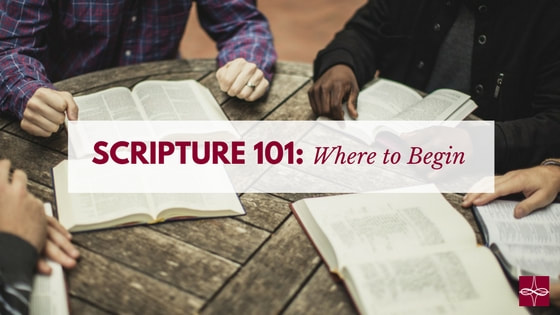


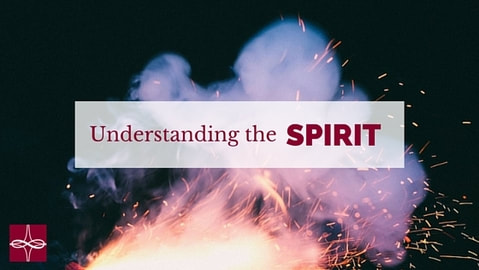

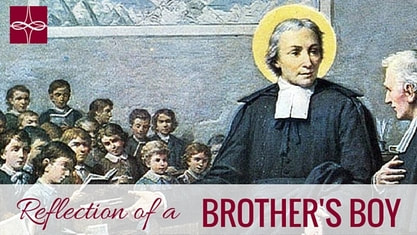

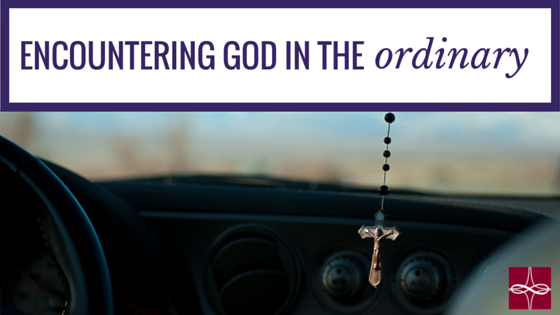

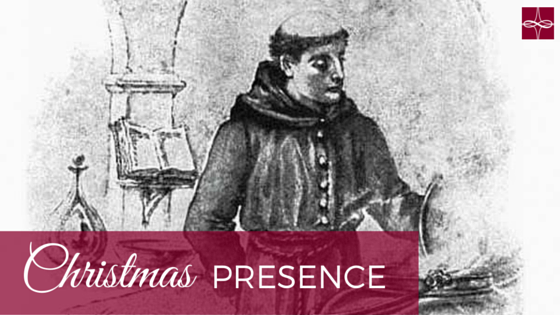


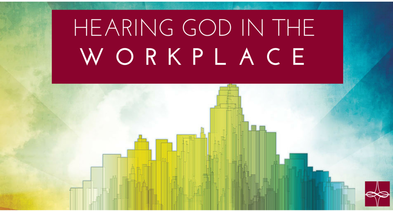






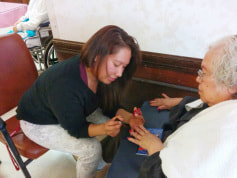
 RSS Feed
RSS Feed